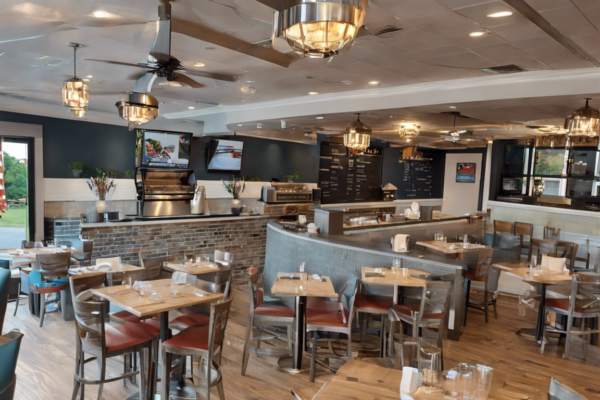What Enterprise Practice Contributed Most To Andrew Carnegies Capability To Kind A Monopoly?
The rich elite of the late 19th century consisted of industrialists who amassed their fortunes as so-called robber barons and captains of trade. Both could be defined as enterprise tycoons, but there was a significant distinction in the best way they made their fortunes. Monopolies usually might help a rustic or region construct or shore up its infrastructure rapidly, effectively, and successfully. But when any firm becomes too dominant, leaving little room for competitors, service, quality, and shopper wallets can suffer.
His model worked higher within the American West, the place the railroads have been nonetheless broadly scattered across the nation, forcing farmers and companies to pay no matter prices Gould demanded in order to use his trains. When he died in 1892, Gould had a personal value of over $100 million, although he was a deeply unpopular figure. In 1860, the United States had produced solely 13,000 tons of steel. Twenty years later, it produced eleven,227,000 tons, greater than England and Germany combined. By that time, steel was the measure of a country’s industrial may, and Carnegie was primarily responsible for American strength in steel manufacturing.
In Rockefeller’s case, this model required investment and acquisition of corporations concerned in every thing from barrel-making to pipelines, tanker automobiles to railroads. He came to own almost every kind of enterprise and used his huge energy to drive competitors from the market through intense worth wars. Other industrialists shortly adopted swimsuit, including Gustavus Swift, who used vertical integration to dominate the united states meatpacking business in the late nineteenth century. Monopolies are most likely to return up at some extent in historic past when new products or services turn into dominant within society, just like oil, phone service, laptop software, and now, social media.
For example, John Locke claimed that a pure tendency to create a monopoly was one of the main causes of revolution. He stated that pure monopolies arose from monopoly authorities. Carnegie obtained the honorary Doctor of Laws from the University of Glasgow in June 1901, and obtained the Freedom of the City of Glasgow “in recognition of his munificence” later the same 12 months. Also in 1902, he was elected as a member to the American Philosophical Society. He acquired an honorary Doctor of Laws from the University of Aberdeen in 1906. In 1910, he acquired the Freedom of the City of Belfast and was made as nicely Commander of the National Order of the Legion of Honour by the French authorities.
He constructed Pittsburgh’s Carnegie Steel Company, which he sold to J. P. Morgan in 1901 for $303,450,000; it formed the basis of the united states After promoting Carnegie Steel, he surpassed John D. Rockefeller because the richest American for the following a quantity of years. There are signs, however, that a minimum of some business ethicists are beginning to grapple with these shortcomings.
In 1864, Carnegie was one of many early traders within the Columbia Oil Company in Venango County, Pennsylvania. In one 12 months, the farm yielded over $1,000,000 in cash dividends, and petroleum from oil wells on the property offered profitably. The demand for iron merchandise, such as armor for gunboats, cannons, and shells, as well as a hundred other industrial products, made Pittsburgh a center of wartime manufacturing. Carnegie labored with others in establishing a metal rolling mill, and metal manufacturing and control of trade grew to become the supply of his fortune.
On the floor, Andrew Carnegie seems to be a strict laissez-faire capitalist and follower of Herbert Spencer, usually referring to himself as a disciple of Spencer. Conversely, Carnegie, a titan of trade, seems to embody the entire qualities of Spencerian survival of the fittest. The two men loved a mutual respect for each other and maintained a correspondence until Spencer’s dying in 1903. There are, nevertheless, some major discrepancies between Spencer’s capitalist evolutionary conceptions and Andrew Carnegie’s capitalist practices. Carnegie didn’t wish to marry during his mom’s lifetime, as an alternative selecting to take care of her in her illness in the path of the top of her life.
Understand the that means of a monopoly in economics and what it does. Also, know the traits of a monopoly and the different varieties of monopolies. In the United States, all folks over the age of 21 who wouldn’t paprika unscramble have a full-time, paying job are thought-about “unemployed.” Refer to the box titled, “The Balance Sheet of an ‘Average’ American Household” when answering components a and b.
They have it in their power during their lives to busy themselves in organizing benefactions from which the plenty of their fellows will derive lasting advantage, and thus dignify their very own lives. Because these fields are extra conventional professions, their greatest ethical analysts have tended to be practitioners like Hippocrates or Oliver Wendell Holmes. Such thinkers accepted and worked throughout the fundamental premises and norms of their professions. And that context has allowed them and others to provide you with moral precepts of practical worth to precise docs and legal professionals. The more entrenched the self-discipline turns into in enterprise schools, the extra bewildering it seems to managers.
He resolved that if he ever grew to become rich, he would give other working boys the same alternative. After establishing a monopoly, Carnegie realized that all of his opponents were focusing their efforts on a couple of key components that could have an effect on his enterprise. For example, he realized that the worth of manufacturing products was a lot higher than the value of merely providing entry to the product. By learning the actions of his competitors and observing their methods, Carnegie was in a place to create a monopoly that benefited him, however it additionally benefited those that wanted to buy his products. What makes this instance of enterprise innovation so attention-grabbing is the fact that Carnegie didn’t simply open up any enterprise that popped up. Rather, the story of how he was able to do this is a case study in why a profitable entrepreneur shouldn’t be afraid to suppose outside the box in terms of enterprise practices.






